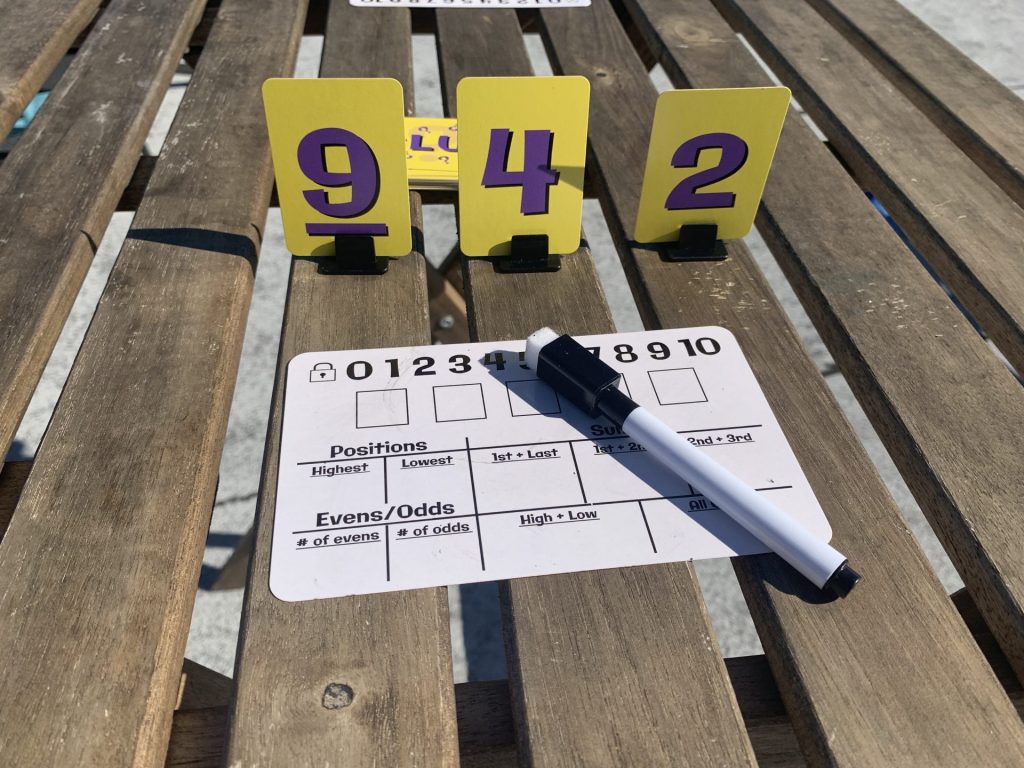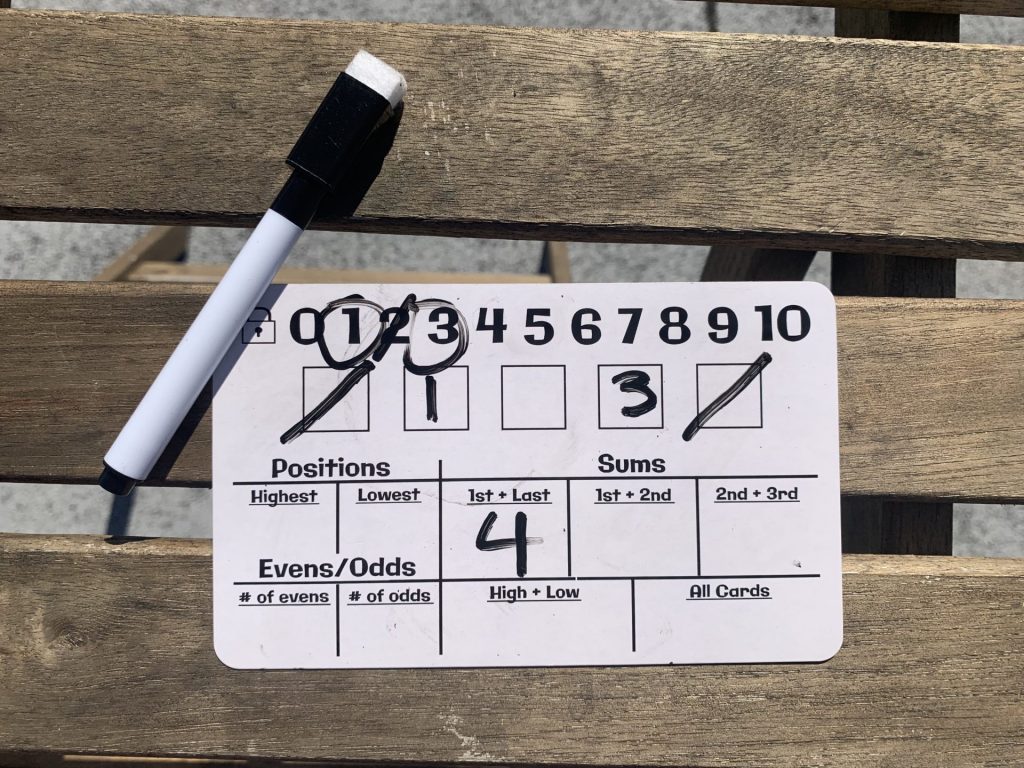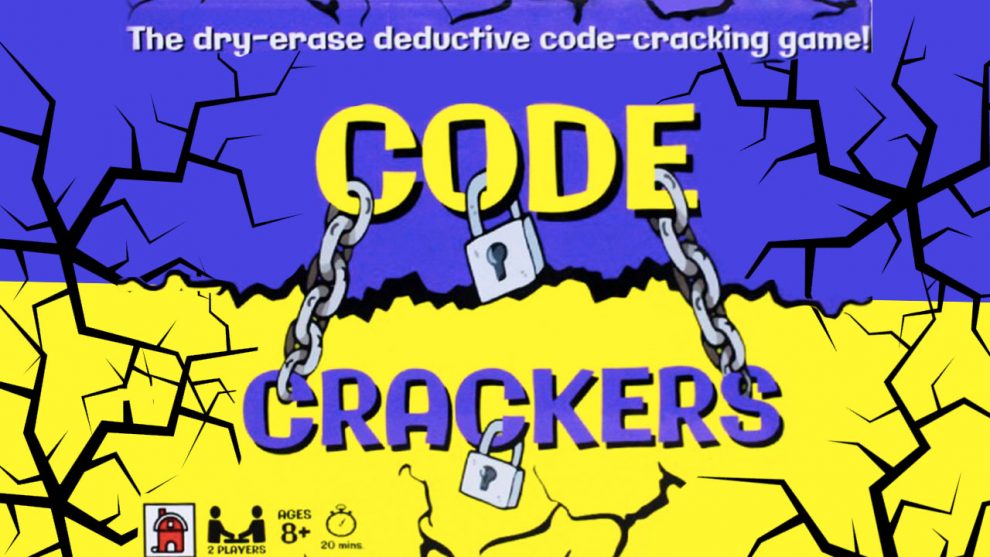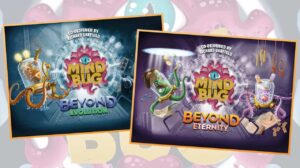Disclosure: Meeple Mountain received a free copy of this product in exchange for an honest, unbiased review. This review is not intended to be an endorsement.
I like math. I really do. Not everyone does, though I’m sure the board gaming community is skewed towards the tickled-by-math crowd. After all, what are most board games but thinly-disguised algorithms? Code Crackers, a two-player game from new publisher Barndoor Games, is emphatically a game for people who like, or at least don’t mind, math.
This is Mastermind for the calculator crowd. Code Crackers challenges players to figure out a series of three increasingly large numerical codes before their opponent manages to do the same. By taking turns revealing clue cards with prompts such as “Is there a 3 in your code?” and “What is the sum of the cards in the 1st and 2nd positions?,” players use rudimentary math skills to chip away at the mysterious code on the other side of the table.

The setup is simple, with each player drawing five cards and choosing three to create a code for their opponent. You are given a dry erase marker, a laminate card with boxes for specific pieces of information, and a deck of clue cards, which will be revealed one at a time during your turn. Turns consist of either revealing a card and noting the appropriate piece of information, or guessing as to what the code is. If you’re wrong, you’ve simply wasted a turn. If you’re right, you clear your board and your opponent draws six cards with which to make a four-digit code. This repeats until one of the two players has solved a five-digit code.
The use of clue cards can occasionally be irksome—revealing “Does your clue contain a 3?” is frustrating when you’ve already ruled 3 in or out from other clues—but it has a balancing effect. If one clue ends up giving you a massive amount of information, it will inherently make other clues less valuable. One of the best things about this design choice is that it makes games between younger kids and adults more genuinely competitive.

I expected Code Crackers to be pleasant, but I was surprised to discover that it has many of the hallmarks of the best two-player games. I have a particular passion for two-player titles, for the intimacy they can create, and in all my games of Code Crackers I found that both I and my opponent were fully absorbed in the game, focused on the task without becoming so invested that conversation stopped. Code Crackers worked equally well as an after-work de-stressor with my roommate and as a follow-up to a romantic candlelit dinner. It would be a ball for parents to play with their kid(s), with one parent helping. It would also be a wonderful addition to a math classroom, a great way to show students how math can be fun.
This is exactly the kind of puzzle that I enjoy, and the morphine drip of information, one card per turn, is tantalizing. I haven’t had a chance to play the giant variant, which includes longer codes and more clues based around multiplication, but I look forward to giving it a try. Code Crackers is lovely, quick, and enjoyable. It’s easy to get on the table and quick to teach. I won’t say explicitly whether or not I recommend it; I trust you to do the math.











Add Comment